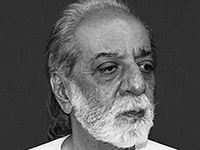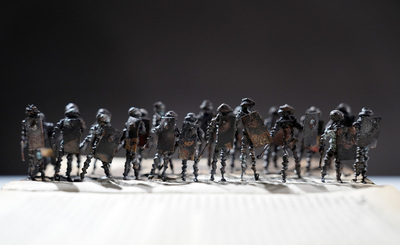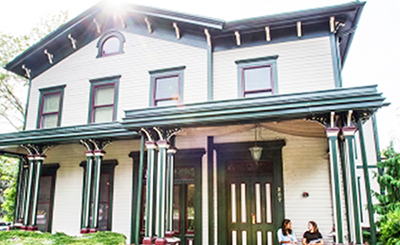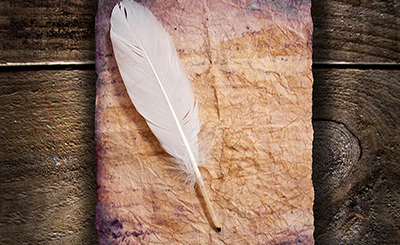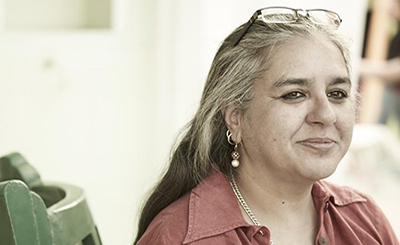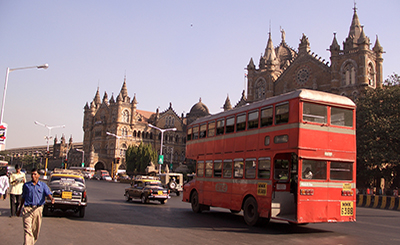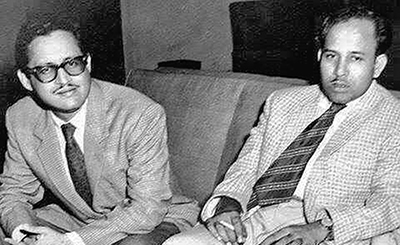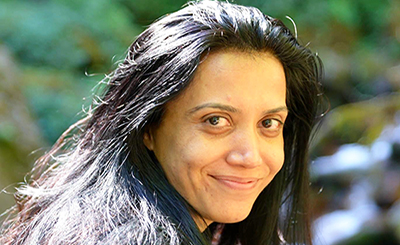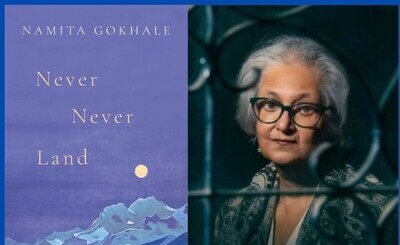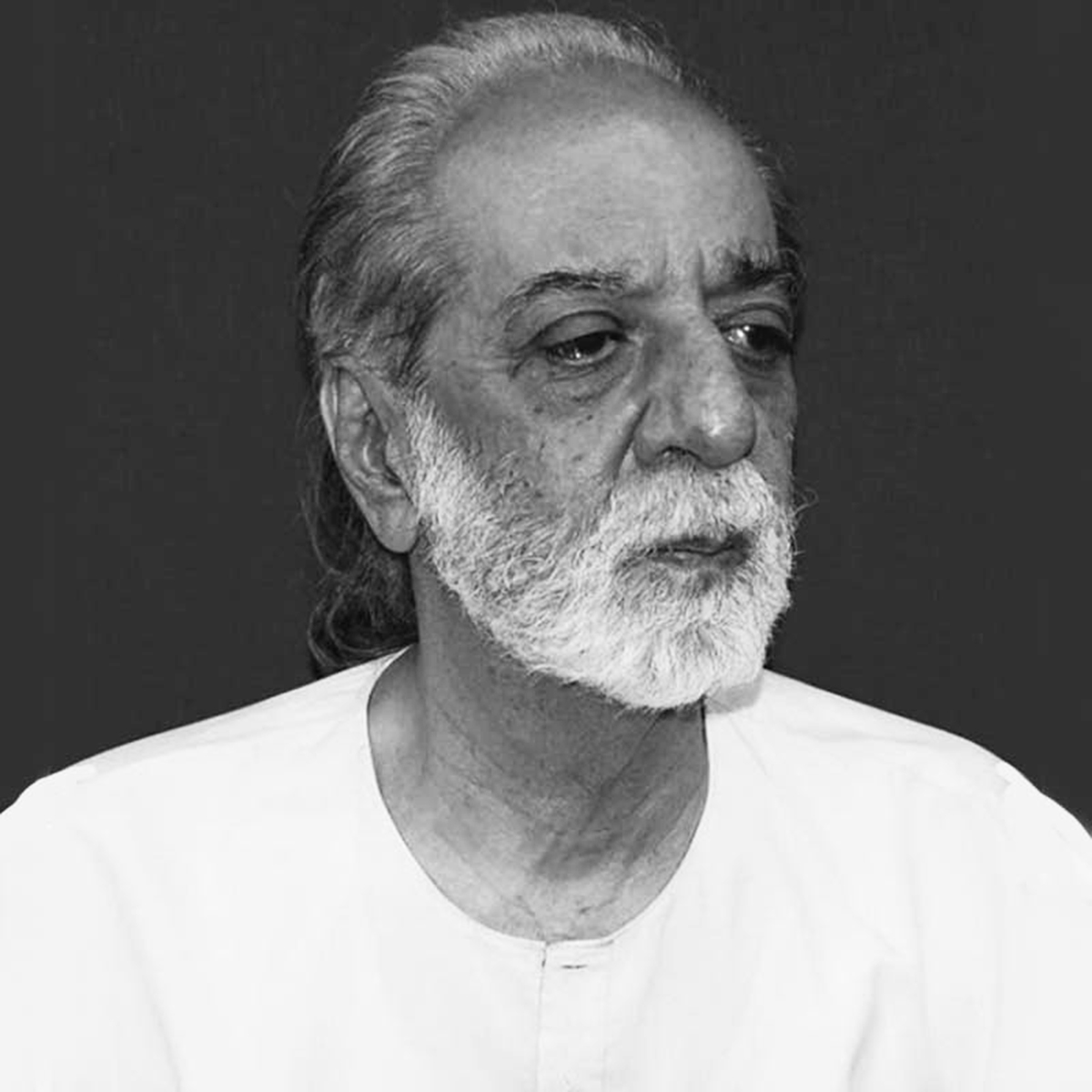
Adil Jussawalla. Photo: Jehangir Nicholson Art Foundation
Notes on Adil Jussawalla’s craft: ‘Poet of the synapse’
Adil Jussawalla’s is a sharp yet intimate voice, fearless but melancholic, marked by a darting, wily syntax, bristling rhymes, and an original prosody. In Trying to Say Goodbye (2014), his third collection that won the Sahitya Akademi award, for instance, he moves across time to address an array of histories, both personal and public. He lifts from and pays homage to poets, artists, drunks, vagabonds, and eccentrics, and writes through the deep materiality of everyday objects — a wristwatch, a radio, clay, wood, marble, a cloud, a fly — in reaching toward a further scale. Jussawalla is the “poet of the synapse, the prose stylist at the fissure” as Jerry Pinto described him once. He writes complex poetry — ironic, fragmented, non-linear, formally strenuous — that evokes and indicts a dehumanised, spiritually sterile landscape, ravaged by contradiction, suspended in a perpetual state of catastrophe.
Source: Poetry. South Asia Studies,
Maps for a Mortal Moon: Essays and Entertainments;
Selected Prose by Adil Jussawalla,
Edited and Introduced by Jerry Pinto (Aleph 2014),
Jehangir Nicholson Art Foundation
Shorelines
A new moon rising in rain,
a shore buttressed with shanties.
There’s a woman in a doorway.
She says, ‘We’re all castaways here’
and takes me in.
*
Another sea, a calmer woman.
The horizon was decked out with sails.
The poem I wrote her satisfied two,
their looks opening into each other
like rooms that share a door.
I couldn’t stay and bolted.
*
I won’t describe every shoreline that’s pulled me up short,
waiting for passage. They are all one now,
the edge of Blackwater, the sea we crossed at our peril.
Is everyone here? The Earth is flat
and not everyone’s accounted for.
*
Here’s a picture in case you missed it:
Its stark, its doorways and windows vanished.
Its winds have nothing to rattle so they howl.
It repeats itself wherever you stay.
It repeats itself no matter what.
*
Its waves go on and on too,
Sending their usual message:
a pause, and a long hiss.
*
At night the sea’s barely visible.
Beyond it other shorelines.
Beyond them fjords and galaxies.
Now
Sea made of newsprint, ships made of newsprint,
there just an hour ago and gone down a drain
we refused to confirm existed.
A full week’s rumours didn’t take hold.
This incident too may not be reported.
The radio is playing sa-re-ga-ma
after ‘And that is the end of the news’
and no one seems able to stop it.
Now I can see the sky’s grip loosening.
It looks sickly, it crumples, it goes.
The Days
Black rocks run their wounds.
The last swimmers pause.
The sun’s on edge, a gong.
His mother goes alone.
She won’t be coming back.
Each day ends like this:
she won’t be coming back.
Fathers have their reasons,
people have their stones.
Black rocks run their wounds.
Lighthouse
The great Romantics said it with shipwreck
(Gericault, Turner), how elements fuse
to block out all light, then crash on the hapless
left clutching air or if lucky, lifted again to try
salvation, to catch signs of life on a hill, a shoreline,
a lighthouse.
So it was in the lands I’ve been on, not at sea.
In disparate rooms disconnected, not built to hold off
or spare us the great resurrections that shatter,
that we first believe come out of nowhere, but later may learn
rise from depths of our own, their unlit places,
only if given the chance to be freely aware
as we are engulfed that all is not lost, calm happens.
Just as mother was calmed by distant light,
from the chapel of Silent Unity, someone there always at prayer,
so I too try to be stilled by her faith, that light,
the prayer books she left, beginning to see in and from
time still available, from childhood in fact,
two or three people or more in its neighbourhood,
downcast by night, watch something steady:
hidden from sight, father writing his books,
a room in what appears to be unfeasible darkness,
its window uncurtained, its one light on.
The essay and the poems are part of our Poetry Special Issue (January 2021), curated by Shireen Quadri and Nawaid Anjum. © The Punch Magazine. No part of this essay or the new poems exclusively featured here should be reproduced anywhere without the prior permission of The Punch Magazine.
More from The Byword
Comments
*Comments will be moderated



